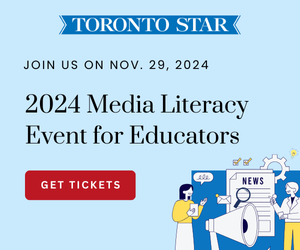 The Conservatives were re-elected yesterday. They won a majority government. As the leader of the Conservatives, Stephen Harper will remain Canada’s Prime Minister.
The Conservatives were re-elected yesterday. They won a majority government. As the leader of the Conservatives, Stephen Harper will remain Canada’s Prime Minister.
For the first time in history, the NDP came in second and is the “official opposition.”
The Bloc Quebecois had historic losses, falling from 50 seats in Parliament to just 4. It was also an historic election for The Green Party, which won its first seat.
Across the country on Monday, Canadians voted for a Member of Parliament (MP) in their area, or riding. Having an MP in Parliament is known as having a “seat” in Parliament. The MPs who get elected work in the House of Commons in Ottawa to represent the people who live in their riding.
There are 308 seats in the House of Commons. To win the “majority” of seats, the Conservatives needed to win 155 seats.
Here is how many MPs in each party were elected
Conservatives (Leader, Stephen Harper): 167
NDP (Leader, Jack Layton): 102
Liberals (Leader, Michael Ignatieff): 34
Bloc Quebecois (Leader, Gilles Duceppe): 4
Green (Leader, Elizabeth May): 1
The Conservatives were elected as a “majority” government. That means they have more MPs in the House of Commons than the other main parties (NDP, Liberals, Bloc Quebecois and Green) combined. That’s important because it means that when they are trying to get things done in Parliament, they will have more votes than everyone else put together. It will make it easier for them to operate as a government.
One very surprising thing about this year’s election is that the NDP came in second. Historically, the Liberals and Conservatives come first or second (some years the Liberals have been first, some years they have been second). The NDP usually comes in third. The NDP says their strong showing is due to a well-run campaign and an excellent job by NDP leader Jack Layton in the leadership debate. The NDP did very well in Quebec, taking many seats away from the Bloc Quebecois. In the 2008 election, the NDP won about 12 per cent of votes in Quebec. In this election they won about 40 per cent of the province’s votes.
It is important to come in second rather than third, because the party that comes in second usually becomes the official opposition. The official opposition acts to “keep an eye” on the government. They normally select MPs to “shadow” the MPs in the government. If they disagree with something the government MP does, they speak up and bring it to everyone’s attention.
It appears that slightly more people than usual voted. In any election, some people don’t bother to vote – one reason is that they may think their vote doesn’t matter. In this election, however, people seemed more interested in it. It was a very close race and no one really knew how it would turn out for the three main parties. That may have helped more Canadians to feel that their vote would matter.
This was especially true of young voters. During the campaign, Canadian celebrity Rick Mercer urged young people (aged 18 to 25) to vote. He encouraged people to form “vote mobs.” A vote mob is a group of people who agree to gather at a certain place and time. They arrange it by sending messages on Twitter, email and Facebook to tell each other where and when to meet up. It is a peaceful gathering that lets people know that young people are excited about voting. Vote mobs happened at many of Canada’s universities including the University of Guelph, the University of Victoria and the University of Ottawa.
Related Links
Rick Mercer’s excellent “rant” encouraging young Canadians to vote.
A YouTube video of a vote mob.
CURRICULUM CONNECTIONS
Writing/Discussion Prompt
In Canada not everybody who is eligible to vote actually does. Why do you think it is important for people to exercise their right to vote? Write three arguments explaining why it is important to vote.
Reading Prompt
How do you feel about the election results? Do you think Canadians made a good choice? Use evidence from the text and your own ideas to support your answer.
Junior
Use stated and implied ideas in texts to make inferences and construct meaning (OME, Reading: 1.5).
Intermediate
Develop and explain interpretations of increasingly complex or difficult texts using stated and implied ideas from the texts to support their interpretations (OME, Reading: 1.5).
Grammar Feature: Proper Nouns
Nouns are people, places and things. A proper noun names either a specific, unique noun (such as Jack Layton, Toronto or the University of Victoria). Proper nouns always begin with capital letters, even in the middle of sentences.
Find and underline all of the proper nouns in the article.








